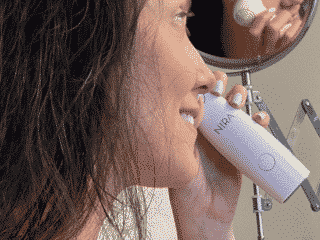
Fortunately, there are few simple steps doctors recommend that can help make the process of conceiving a child a little easier and worry-free from the get-go. While none of these tips can guarantee a child, they can certainly help alleviate some avoidable obstacles before you and your partner get started. At the end of the day, many factors go into conception, including luck, so it’s important to stay optimistic and continue trying. Nevertheless, here are five fantastic tips to help support your chances of conceiving.
Visit The Doctor Beforehand
One of the best ways you can prepare before you start trying to have a child is by visiting your doctor for a check-up. Not only does this ensure that you and your partner are in healthy physical shape to begin trying to conceive, you can also make sure that you are able to safely become pregnant without complications from an underlying medical condition.
You can also take the opportunity to ask your doctor any questions you have about pregnancy, or to request prenatal vitamins that can help make sure your child is healthy once you do conceive. Be sure to ask your doctor about vitamins with folic acid, as studies suggest the substance is able to protect children against certain birth defects during conception. Prenatal vitamins also help to keep the mother during pregnancy as well.
Understand Your Cycle
While a number of factors are in play during pregnancy, one of the important ones is the mother’s menstrual cycle. Women are most able to conceive during ovulation, the stage during menstruation when a mature egg is released into the fallopian tube. This typically occurs around the 14th day of a woman’s period, although the exact time may vary from person to person.
An ovulation predictor kit can be a great tool to help couples trying to conceive make sure that they’re trying during the most fertile stage of the menstrual cycle. When using an ovulation predictor kit, women should begin testing on the ninth day of their menstrual period and continue every day until a positive result is obtained.
Other signs of ovulation include changes to your cervical mucus, which typically becomes thinner and more slippery when your menstrual cycle is in the ovulation stage. Slight pain on one side of the torso may also indicate ovulation. By focusing your attention on trying during ovulation, you and your partner can maximize your chances of conceiving as soon as possible.
Rest After Sex
During conception, sperm travels through the vaginal canal into the cervix, inseminating an awaiting egg. It can be easy to negatively affect this process, however, by moving around too much or using the bathroom immediately after intercourse. That’s why many doctors recommend that you lay in bed for around ten to fifteen minutes directly after sex, in order to allow sperm cells to enter the cervix without external disruption. By resting after sex, you can maximize your chances of conceiving quickly.
Stay Calm And Avoid Stress
Although trying to conceive a baby can be a very stressful time, it’s important that you and your partner remain mindful of your mental health and wellness. Not only can unresolved stress and anxiety make the process of conceiving even more difficult, but studies have also actually shown that stress can affect ovulation and conception. The release of the stress hormone cortisol also presents a variety of other long-term health risks, so always remember to take the time you need to vent, de-stress and relax whenever necessary.
Strive to Maintain a Healthy Lifestyle
Finally, the most important part of any life decision, especially conceiving a baby, is to look after yourself and stay fit and healthy. Aim to perform some light exercise daily, although it’s also important not to exercise excessively as too much exercise may interfere with your ovulation. Eat well, take regular breaks when necessary, and make sustainable lifestyle choices. You can’t conceive a healthy child if you’re not healthy yourself.






